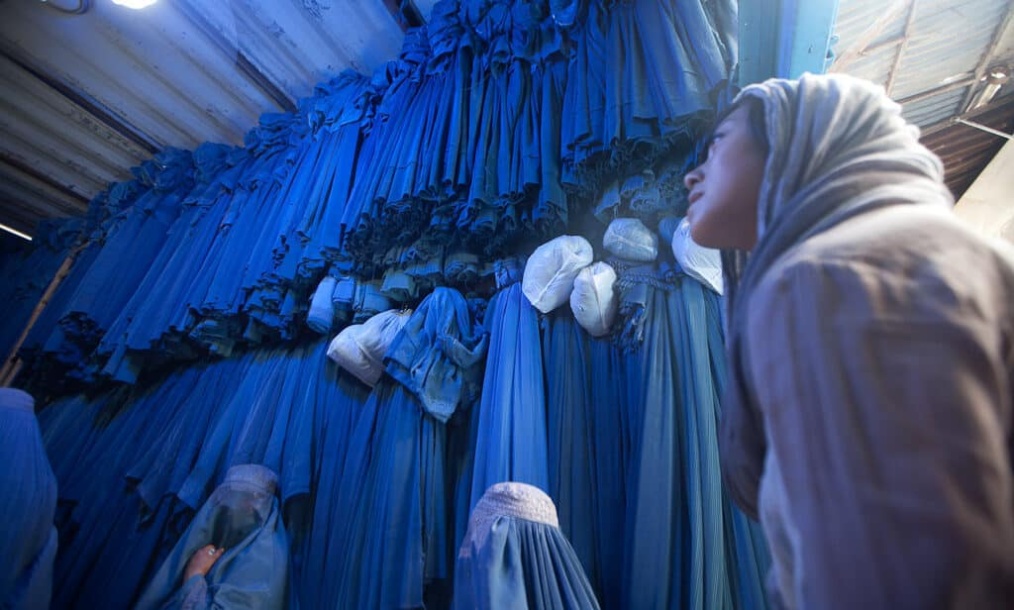
Sexual Repression of Afghan Women: a Taliban’s State-Building Strategy
“Women’s security in the home is a reflection of the security in the country. If women cannot be safe at home, they’re not safe at all. And if women are not safe, then no one is safe,” Lina Abi Rafeh wrote.
In just a year, Afghan women have lost most of the rights they had fought for over the last two decades. Women cannot study past primary school, can no longer work unless they are nurses or teachers, and are constrained to the domestic sphere as their support systems collapse. Reports show that most women’s shelters have stopped taking in new women as they are forced to operate in total secrecy or have been shut down completely, including the Ministry for Women’s Affairs.
But what do all these restrictions have in common? They are making women “prisoners in their own home,” as Human Rights Watch stated, and are symptomatic of one of the Taliban’s state-building strategies: utilization of sexual capital.
The Taliban, who rose back to power in August 2021, are rooting their state-building strategy in the private, the intimate, and the goal of destroying and reshaping women’s identities through strict, gendered, and repressive norms.
School curricula have been modified to focus more on religious studies and norms. “They dictate what women must wear, how they should travel, workplace segregation by sex, and even what kind of cell phones women should have. They enforce these rules through intimidation and inspections,” Human Rights Watch said.
The Taliban enforce a collective identity based on common –and imposed– norms and morals (women’s rights but “within Islamic law”). They are institutionalizing repression, or in other words, ideals of feminine purity, through the Ministry for Propagation of Virtue and Prevention of Vice, which replaced the Ministry of Women’s Affairs.
The regulations focus on women’s bodies and most importantly relate to the Muslimwoman archetype coined by Fatima Mernissi. Characterized by modesty, chastity, and motherhood, this identity being forced upon women is primordial in creating collective cohesion in a context of local division and conflict.
“State building is the insurgent’s central goal,” Stathis Kalyvas, author of The Logic of Violence in Civil War, writes. And as a proto-state –in a perpetual power struggle with domestic and international actors– the Taliban ultimately strives for control and will enter people’s homes to exert that control. Controlling sexual capital, or the way women dress, if they’re allowed to wear makeup, and refusing them any support for sexual violence, is merely a reflection of how the Taliban use the intimate to impose its state.
Over the last year, the Taliban freed more than 3 000 prisoners, many of whom are perpetrators of gender-based violence. For women who were abused by their husbands, members of their families, or their communities, this means further insecurity and a reduction of their allocated space in society.
“We don’t leave our home much,” a government worker told Human Rights Watch. “When we leave, we leave with a mahram [male guardian]. Some things like sanitary pads must be purchased by women themselves, but it’s hard to do it with a man accompanying us. …Women can’t take transport, they either must go out with a mahram or walk. They should walk with burqa, no heels, no makeup.”
By locking women into roles of mothers and wives, the Taliban seek to use their sexual capital to breed new generations of individuals who belong to a definitive collective identity.
Furthermore, this increased polarization between the righteous Muslimwoman and the glorious militant man further brings the Taliban culture of political extremism and violence into the home. These norms already have –and will continue– to lead to increased domestic violence and sexual violence. It is a perpetual cycle; locking women in their homes, making them more prone to domestic and sexual violence and patriarchy-rooted masculinity, which serves the Taliban’s collective identity and thus, its state.
Overall, there should be a greater focus on gendered analyses of Taliban state-building to better understand the group’s motive and strategy, going beyond the sole ideological and religious factors. In doing so, the long-term implications of a forced collective identity will be revealed and provide insight into the future for Afghan women in society.
Emma Beilouny, Counter-Terrorism Fellow
